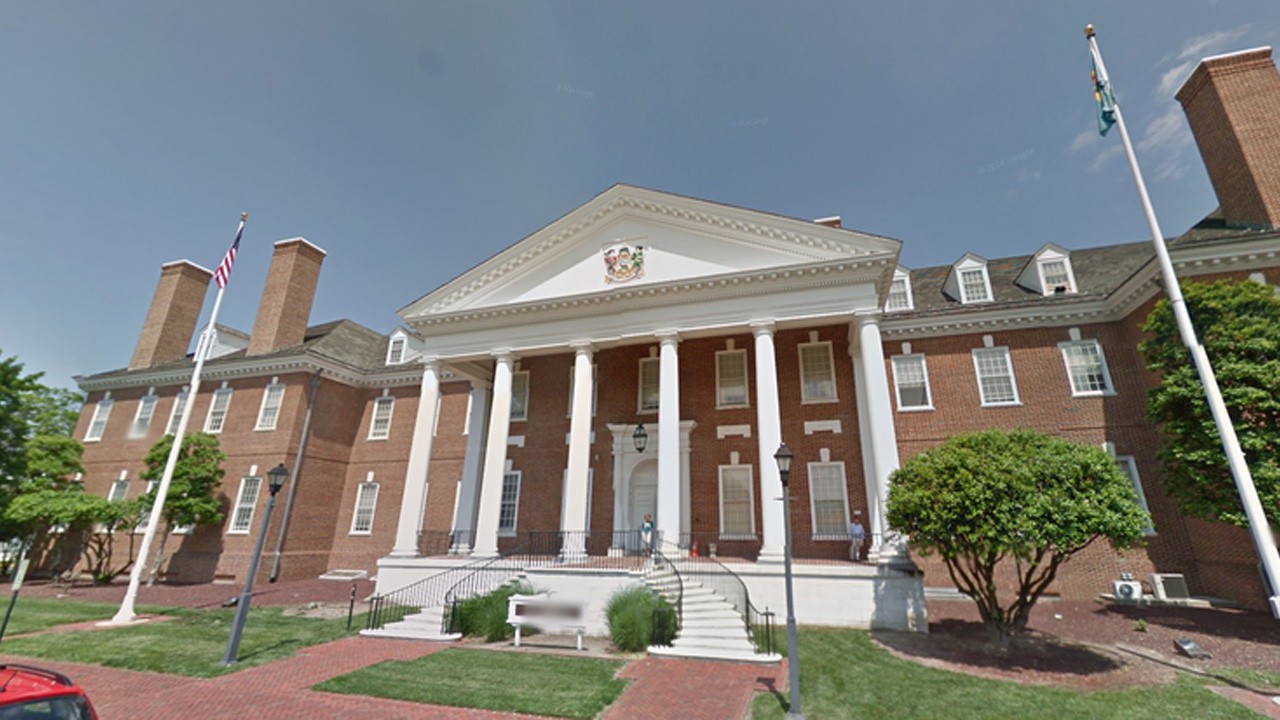
The Townsend Building in Dover, Del., which houses the state's Division of Corporations. (Photo credit: Google Maps)
This post originally appeared at Sunlight Foundation.
From the Federal Election Commission’s suggestion that it might finally begin scrutinizing donations to super PACs from mystery limited liability companies (LLCs) to the revelations in the Panama Papers, LLCs are very in right now. The leak of the Panama Papers reportedly shows the use of offshore shell companies to hide cash by many high-profile foreign figures, from highly-paid soccer star Lionel Messi to the prime minister of Iceland, but the lack of Americans implicated in the investigations has raised eyebrows in the international community. We’d all like to believe that it’s because most Americans are law-abiding folks, but there might be another answer: Americans don’t need offshore companies in tiny island nations to hide their money. America has Delaware.
Delaware is home to more than a million companies, meaning it has more companies than actual human residents. In 2012, The New York Times reported that a single building in Wilmington was the legal address of over 285,000 separate businesses. About 65 percent of Fortune 500 companies are incorporated in Delaware. Many companies choose to incorporate there because of the “business-friendly” climate and extensive body of corporate law, or because Delaware has much lower corporate taxes than most states. The New York Times says incorporating in Delaware “has enabled corporations to reduce the taxes paid to other states by an estimated $9.5 billion.” But it also happens to be one of the easiest places in the world to set up an anonymous company, making it a great place to establish an LLC to do business that you don’t want anyone to know about or you don’t want to be easily connected to.
Setting up a company in Delaware is extremely quick, easy and inexpensive. Openness advocates like the Financial Transparency Coalition point out that a person needs to provide more personal information to register for a library card than to register an LLC in Delaware. We encountered this problem when we looked into some of the LLCs making donations to super PACs: Two LLCs that made big donations to the super PAC supporting Carly Fiorina, for example, are registered only to Harvard Business Services, with no further identifying information available on public documents. Harvard Business Services charges $50 to list itself as the registered agent, which makes it impossible to find the real owners. In Delaware, that’s perfectly legal.
The New York Times quotes the chief executive of a registration agent — a company that registers companies — as saying Delaware has “the most secret companies in the world and the easiest to form.” A senior researcher at the Tax Justice Network quoted in its piece concurs, calling Delaware “the biggest single source of anonymous corporations in the world.”
There have been efforts to change this system, both federally and at the state level. In 2014, two laws were passed in Delaware that required companies registered in the state to provide the name of someone who knows who the legal owners are, but the legal owners can still be another anonymous company, and the information would only be available via subpoena. The legislation didn’t require any information to be collected or made public about the “real” owners, often called the “beneficial owners.” Global Financial Integrity described the bills as “window-dressing,” saying they would “do nothing” to reveal more about who owns anonymous companies. Former Sen. Carl Levin (D-MI) tried repeatedly to pass a bill requiring states to simply ask for the name of the person establishing the company, but the effort failed every time.
Delaware’s government doesn’t appreciate critics using terms like “race to the bottom”: It has a “myths and facts” page on its website, where it claims that “Delaware has done more than most states to ensure proper transparency” and points out that “Delaware and the majority of states do require disclosure of the names of the natural persons who serve as directors.” (It doesn’t point out that this “natural person” can be someone at a company like Harvard Business Services.)
One reason Delaware has resisted any change to this system: It’s a huge part of the state’s income. According to The New York Times, taxes and fees from these absentee businesses accounted for a quarter of the state’s budget in 2011. In 2015, the Delaware’s secretary of state retained the huge lobbying firm Peck Madigan Jones to lobby on “legislation impacting corporate formation process” and “issues relating to beneficial ownership,” priced at $50,000 per quarter. The state also retained Peck Madigan Jones to lobby on beneficial ownership in 2009; the firm has been retained by the state since 2009 to lobby both the House and Senate on other issues, too, paying as much as $90,000 a quarter.
Even though it’s the easiest place to set up an anonymous company, Delaware isn’t the only state whose laws allow corporate anonymity. Several states — like New Mexico, Wyoming and Nevada — don’t require public disclosure of a company’s owners, though they may compel the release of more information through subpoena. And even if these states don’t provide complete legal protection through anonymity from lawsuits or federal investigation (though they can make it significantly more difficult for law enforcement), they can make it impossible for the public to look into who’s behind these business entitities. That matters a lot when those LLCs are, for example, making big donations to super PACs. As long as any US state has rules this lax, it affects the entire country — just look at how many impossible-to-trace LLCs we found donating to super PACs, contributions that the public will never know the true source of.




